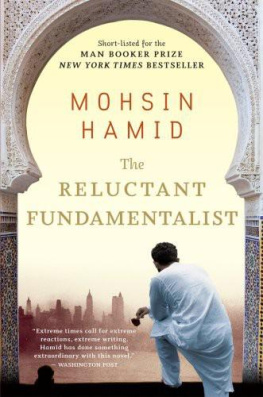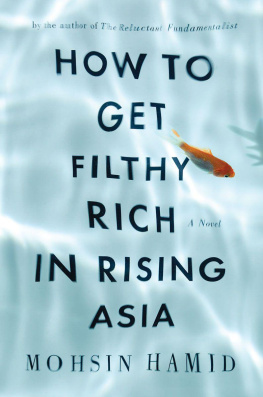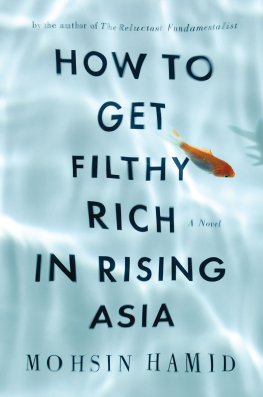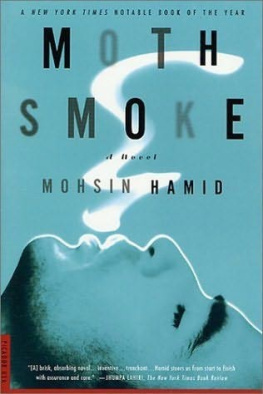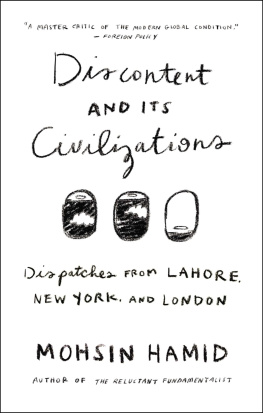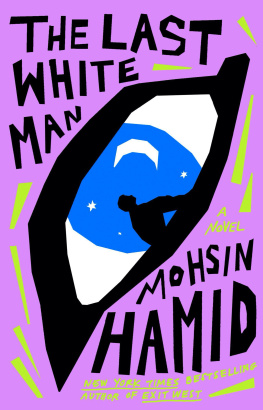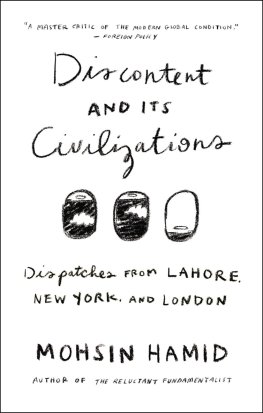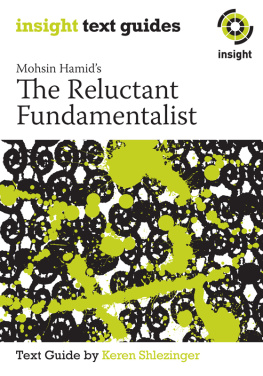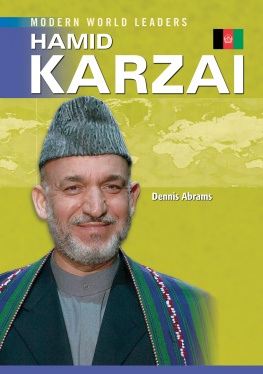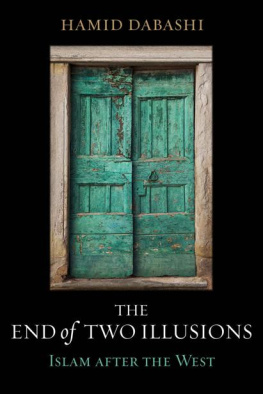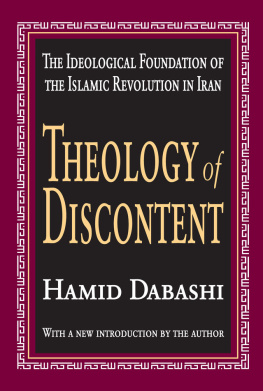Mohsin Hamid - The Reluctant Fundamentalist
Here you can read online Mohsin Hamid - The Reluctant Fundamentalist full text of the book (entire story) in english for free. Download pdf and epub, get meaning, cover and reviews about this ebook. year: 2012, genre: Art. Description of the work, (preface) as well as reviews are available. Best literature library LitArk.com created for fans of good reading and offers a wide selection of genres:
Romance novel
Science fiction
Adventure
Detective
Science
History
Home and family
Prose
Art
Politics
Computer
Non-fiction
Religion
Business
Children
Humor
Choose a favorite category and find really read worthwhile books. Enjoy immersion in the world of imagination, feel the emotions of the characters or learn something new for yourself, make an fascinating discovery.
- Book:The Reluctant Fundamentalist
- Author:
- Genre:
- Year:2012
- Rating:5 / 5
- Favourites:Add to favourites
- Your mark:
- 100
- 1
- 2
- 3
- 4
- 5
The Reluctant Fundamentalist: summary, description and annotation
We offer to read an annotation, description, summary or preface (depends on what the author of the book "The Reluctant Fundamentalist" wrote himself). If you haven't found the necessary information about the book — write in the comments, we will try to find it.
The Reluctant Fundamentalist — read online for free the complete book (whole text) full work
Below is the text of the book, divided by pages. System saving the place of the last page read, allows you to conveniently read the book "The Reluctant Fundamentalist" online for free, without having to search again every time where you left off. Put a bookmark, and you can go to the page where you finished reading at any time.
Font size:
Interval:
Bookmark:

Moth Smoke

Copyright 2007 by Mohsin Hamid
All rights reserved. No part of this publication may be reproduced or transmitted in any form or by any means, electronic or mechanical, including photocopy, recording, or any information storage and retrieval system, without permission writing from the publisher.
Requests for permission to make copies of any part of the work should be submitted online at www.harcourt.com/contact or mailed to the following address: Permissions Department, Harcourt, Inc., 6277 Sea Harbor Drive, Orlando, Florida 32887-6777.
www.HarcourtBooks.com
Portions of this novel were previously published in a somewhat different form in The Paris Review.
Library of Congress Cataloging-in-Publication Data
Hamid, Mohsin, 1971
The reluctant fundamentalist/Mohsin Hamid.1st ed.
p. cm.
1. Pakistani AmericansFiction. 2. Race discrimination Fiction. 3. Self-perceptionFiction. 4. Psychological fiction. I. Title.
1PS3558.A42169R45 2007
813.54dc22 2006021732
ISBN: 978-0-15603-312-1
Chapter 1
Chapter 2
Chapter 3
Chapter 4
Chapter 5
Chapter 6
Chapter 7
Chapter 8
Chapter 9
Chapter 10
Chapter 11
Chapter 12
E XCUSE ME, SIR, but may I be of assistance? Ah, I see I have alarmed you. Do not be frightened by my beard: I am a lover of America. I noticed that you were looking for something; more than looking, in fact you seemed to be on a mission, and since I am both a native of this city and a speaker of your language, I thought I might offer you my services.
How did I know you were American? No, not by the color of your skin; we have a range of complexions in this country, and yours occurs often among the people of our northwest frontier. Nor was it your dress that gave you away; a European tourist could as easily have purchased in Des Moines your suit, with its single vent, and your button-down shirt. True, your hair, short-cropped, and your expansive chestthe chest, I would say, of a man who bench-presses regularly, and maxes out well above two-twenty-fiveare typical of a certain type of American; but then again, sportsmen and soldiers of all nationalities tend to look alike. Instead, it was your bearing that allowed me to identify you, and I do not mean that as an insult, for I see your face has hardened, but merely as an observation.
Come, tell me, what were you looking for? Surely, at this time of day, only one thing could have brought you to the district of Old Anarkalinamed, as you may be aware, after a courtesan immured for loving a princeand that is the quest for the perfect cup of tea. Have I guessed correctly? Then allow me, sir, to suggest my favorite among these many establishments. Yes, this is the one. Its metal chairs are no better upholstered, its wooden tables are equally rough, and it is, like the others, open to the sky. But the quality of its tea, I assure you, is unparalleled.
You prefer that seat, with your back so close to the wall? Very well, although you will benefit less from the intermittent breeze, which, when it does blow, makes these warm afternoons more pleasant. And will you not remove your jacket? So formal! Now that is not typical of Americans, at least not in my experience. And my experience is substantial: I spent four and a half years in your country. Where? I worked in New York, and before that attended college in New Jersey. Yes, you are right: it was Princeton! Quite a guess, I must say.
What did I think of Princeton? Well, the answer to that question requires a story. When I first arrived, I looked around me at the Gothic buildingsyounger, I later learned, than many of the mosques of this city, but made through acid treatment and ingenious stone-masonry to look olderand thought, This is a dream come true. Princeton inspired in me the feeling that my life was a film in which I was the star and everything was possible. I have access to this beautiful campus, I thought, to professors who are titans in their fields and fellow students who are philosopher-kings in the making.
I was, I must admit, overly generous in my initial assumptions about the standard of the student body. They were almost all intelligent, and many were brilliant, but whereas I was one of only two Pakistanis in my entering classtwo from a population of over a hundred million souls, mind youthe Americans faced much less daunting odds in the selection process. A thousand of your compatriots were enrolled, five hundred times as many, even though your countrys population was only twice that of mine. As a result, the non-Americans among us tended on average to do better than the Americans, and in my case I reached my senior year without having received a single B.
Looking back now, I see the power of that system, pragmatic and effective, like so much else in America. We international students were sourced from around the globe, sifted not only by well-honed standardized tests but by painstakingly customized evaluationsinterviews, essays, recommendationsuntil the best and the brightest of us had been identified. I myself had among the top exam results in Pakistan and was besides a soccer player good enough to compete on the varsity team, which I did until I damaged my knee in my sophomore year. Students like me were given visas and scholarships, complete financial aid, mind you, and invited into the ranks of the meritocracy. In return, we were expected to contribute our talents to your society, the society we were joining. And for the most part, we were happy to do so. I certainly was, at least at first.
Every fall, Princeton raised her skirt for the corporate recruiters who came onto campus andas you say in Americashowed them some skin. The skin Princeton showed was good skin, of courseyoung, eloquent, and clever as can bebut even among all that skin, I knew in my senior year that I was something special. I was a perfect breast, if you willtan, succulent, seemingly defiant of gravityand I was confident of getting any job I wanted.
Except one: Underwood Samson & Company. You have not heard of them? They were a valuation firm. They told their clients how much businesses were worth, and they did so, it was said, with a precision that was uncanny. They were smalla boutique, really, employing a bare minimum of peopleand they paid well, offering the fresh graduate a base salary of over eighty thousand dollars. But more importantly, they gave one a robust set of skills and an exalted brand name, so exalted, in fact, that after two or three years there as an analyst, one was virtually guaranteed admission to Harvard Business School. Because of this, over a hundred members of the Princeton Class of 2001 sent their grades and resumes to Underwood Samson. Eight were selectednot for jobs, I should make clear, but for interviewsand one of them was me.
You seem worried. Do not be; this burly fellow is merely our waiter, and there is no need to reach under your jacket, I assume to grasp your wallet, as we will pay him later, when we are done. Would you prefer regular tea, with milk and sugar, or green tea, or perhaps their more fragrant specialty, Kashmiri tea? Excellent choice. I will have the same, and perhaps a plate of jalebis as well. There. He has gone. I must admit, he is a rather intimidating chap. But irreproachably polite: you would have been surprised by the sweetness of his speech, if only you understood Urdu.
Font size:
Interval:
Bookmark:
Similar books «The Reluctant Fundamentalist»
Look at similar books to The Reluctant Fundamentalist. We have selected literature similar in name and meaning in the hope of providing readers with more options to find new, interesting, not yet read works.
Discussion, reviews of the book The Reluctant Fundamentalist and just readers' own opinions. Leave your comments, write what you think about the work, its meaning or the main characters. Specify what exactly you liked and what you didn't like, and why you think so.

